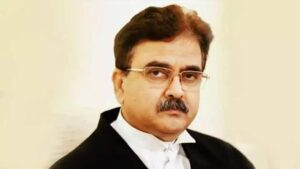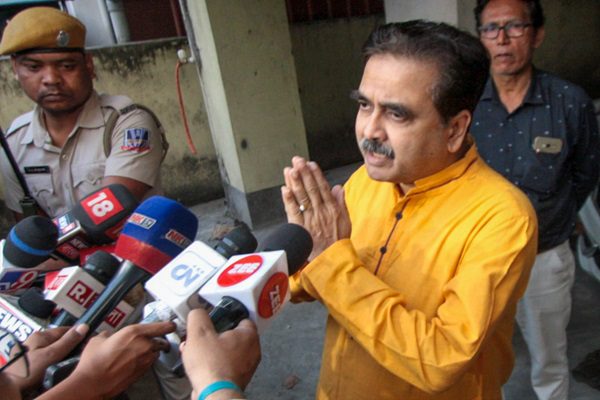Judge Abhijit Gangopadhyay of the Calcutta High Court resigned recently, marking a significant development in Indian courts. This move has sparked political debates and conjectures, announced on February 27, 2024, because Justice Gangopadhyay may enter politics.
A Differing Figure:
During his time on the court, Justice Gangopadhyay encountered some controversy. He was involved in several well-known instances, such as a public altercation with other judges and a letter to the public requesting an apology from 250 lawyers. These episodes shadowed his judicial career, which made him doubt his impartiality and judicial conduct.
Citing Calling Time and Corruption:
Justice Gangopadhyay announced his resignation and stated he was motivated to deal with “huge corruption,” especially in the education sector. He said he thought he could address these concerns more successfully outside the legal system. Remarkably, he hinted at being open to several possibilities by not naming the political party he might decide to join.
An Unprecedented yet Predicted Action:
Judges quitting their positions to seek political office are rare, but they have happened in India. These changes, meanwhile, bring up questions regarding possible conflicts of interest and the public’s view of the judiciary as an unbiased body. These arguments are further fueled by Justice Gangopadhyay’s resignation coincides with impending elections.

Responses and Possible Effects:
Reactions to the news of Justice Abhijit Gangopadhyay resignation have been conflicting. Concerns have been raised by several legal professionals over the possible loss of public confidence in the judiciary should these incidents become commonplace. Others have supported his decision to seek a different line of work, highlighting how crucial it is to uphold moral principles in any sector chosen.
It needs to be determined whose political party, if any, Justice Gangopadhyay would support. His prospective political career could bring something fresh to future elections, especially if he decides to run from West Bengal, where there is already intense competition in the political sphere.
Looking Ahead: Thoughts and Questions
The departure of Justice Gangopadhyay brings up several important issues:
Given his prior judicial status, will his political move be considered a conflict of interest?
Could judges considering taking similar paths use this as a precedent?
How will the legal community and the general public perceive his possible political affiliation?
These inquiries underscore the necessity of candid conversations and thorough evaluation of possible ramifications when judges opt for other career paths, especially in politically heated settings.
Whether Justice Gangopadhyay’s choice is the start of a new political career or just one isolated occurrence remains to be seen in the end. Still, it opens a new chapter in the continuing story of the Indian judiciary’s relationship to the political arena.

